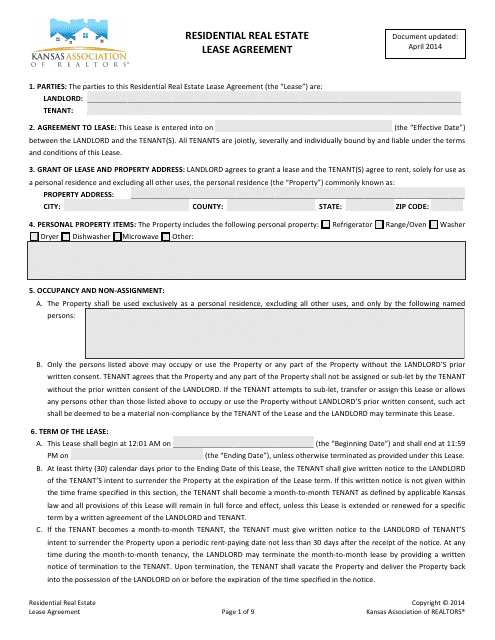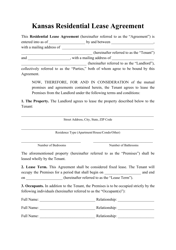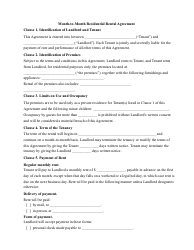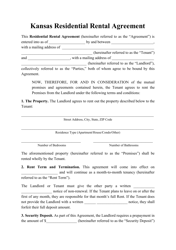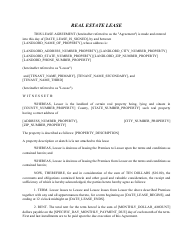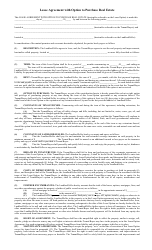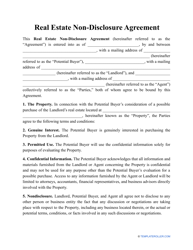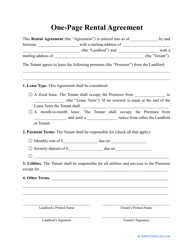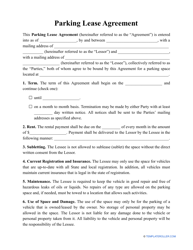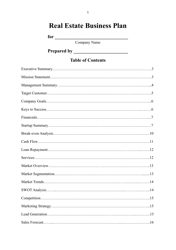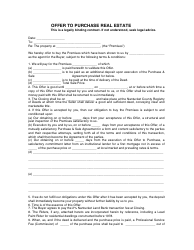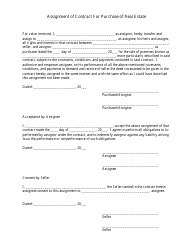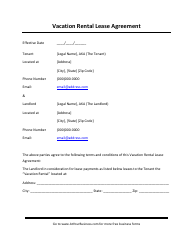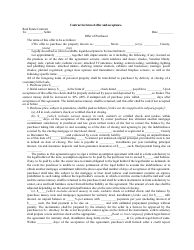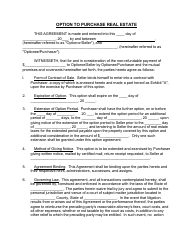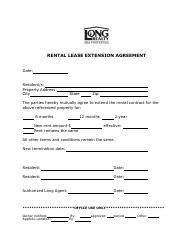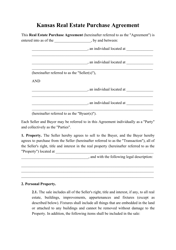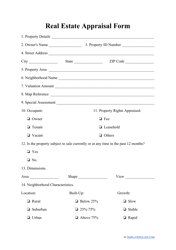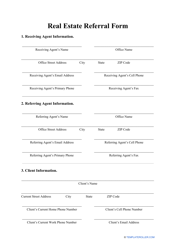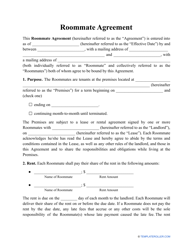Residential Real Estate Lease Agreement Form - Kansas Association of Realtors - Kansas
The Residential Real Estate Lease Agreement Form by the Kansas Association of Realtors is used for renting a residential property in Kansas. It outlines the terms and conditions of the lease agreement between the landlord and tenant.
The residential real estate lease agreement form is typically filed by the tenant and landlord.
FAQ
Q: What is a Residential Real Estate Lease Agreement?
A: A Residential Real Estate Lease Agreement is a legal contract between a landlord and a tenant that outlines the terms and conditions of renting a residential property.
Q: What is the Kansas Association of Realtors?
A: The Kansas Association of Realtors is a professional organization for real estate agents and brokers in the state of Kansas.
Q: Are there any specific requirements or laws for residential leases in Kansas?
A: Yes, Kansas has specific laws and regulations regarding residential leases. It's important to familiarize yourself with these laws and include them in your lease agreement.
Q: What should a Residential Real Estate Lease Agreement include?
A: A Residential Real Estate Lease Agreement should include details such as the names of the landlord and tenant, the rental property address, the duration of the lease, the rent amount and due date, security deposit information, and any additional terms and conditions.
Q: Can a landlord require a security deposit in Kansas?
A: Yes, a landlord in Kansas can require a security deposit, but there are limits on the amount that can be charged and rules for returning the deposit at the end of the lease.
Q: Can a landlord increase rent during the lease term in Kansas?
A: In most cases, a landlord can increase the rent during the lease term in Kansas, but they must provide proper notice as required by state law.
Q: What happens if a tenant breaks the lease in Kansas?
A: If a tenant breaks the lease in Kansas, they may be responsible for paying rent for the remainder of the lease term or other penalties as outlined in the lease agreement and state law.
Q: What are the rights and responsibilities of landlords and tenants in Kansas?
A: Both landlords and tenants in Kansas have rights and responsibilities that are outlined in state laws. It's important for both parties to understand and comply with these obligations.
Q: Is it necessary to have a written lease agreement in Kansas?
A: While not legally required, it is highly recommended to have a written lease agreement to protect the rights and interests of both landlords and tenants in Kansas.
